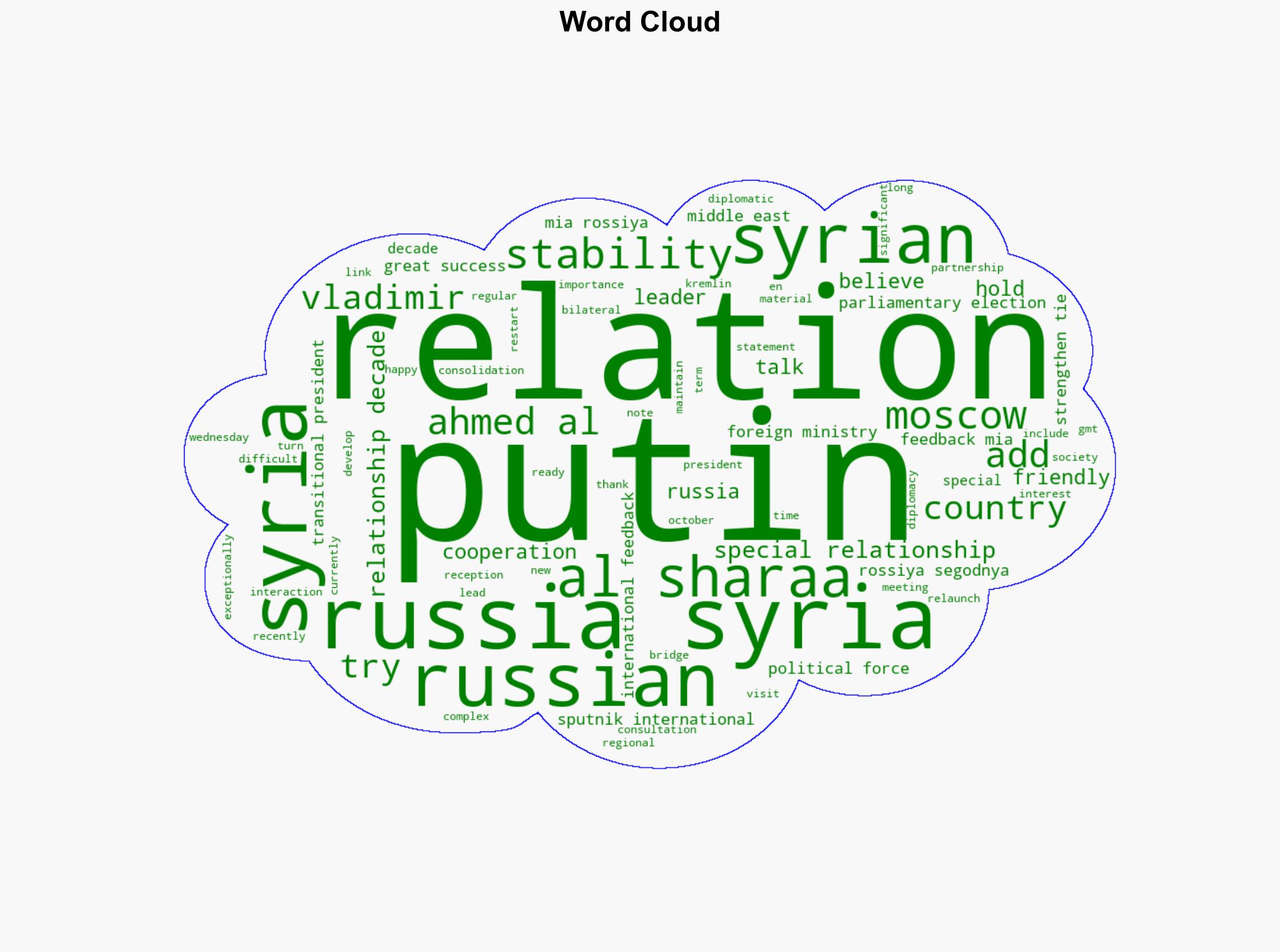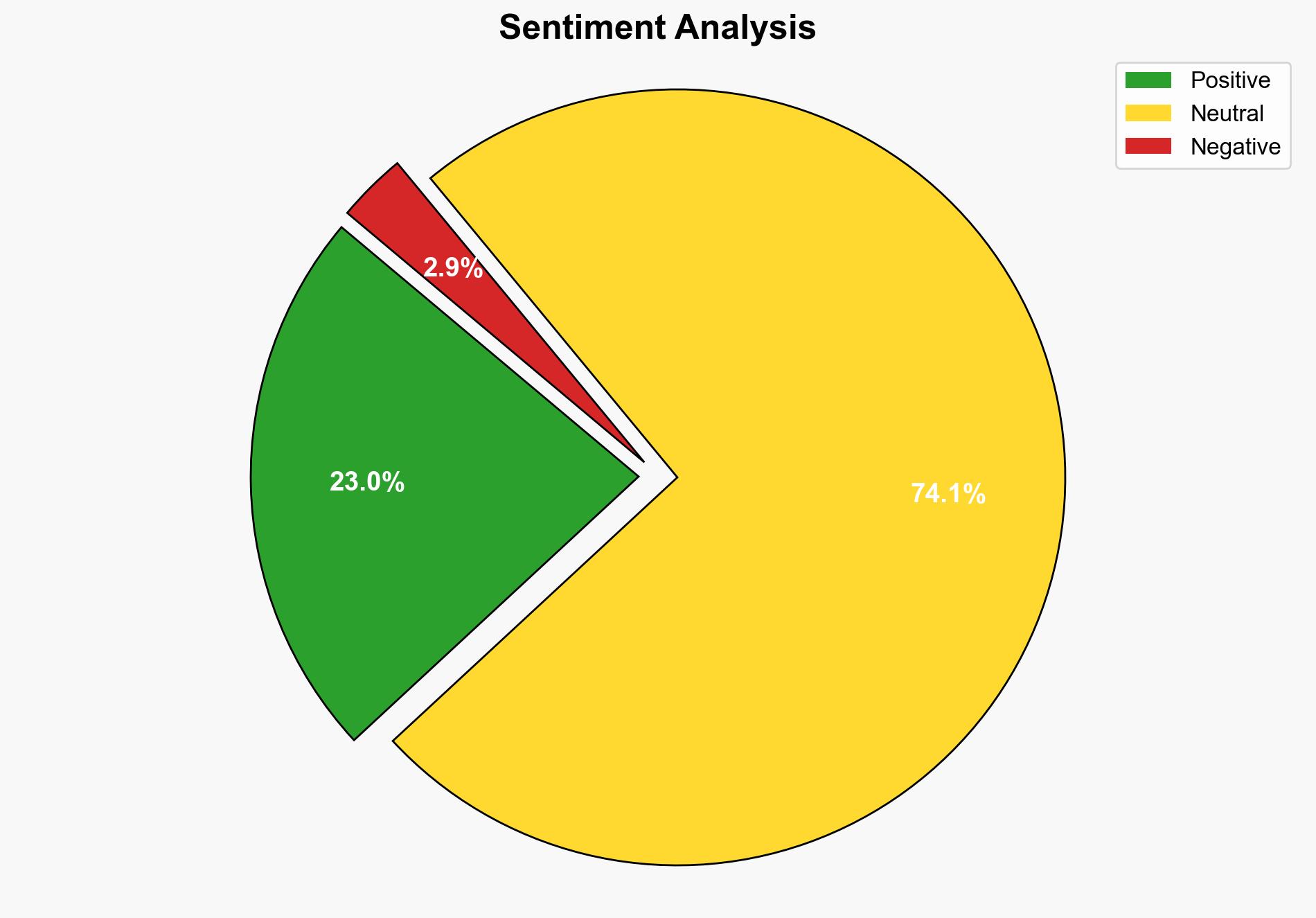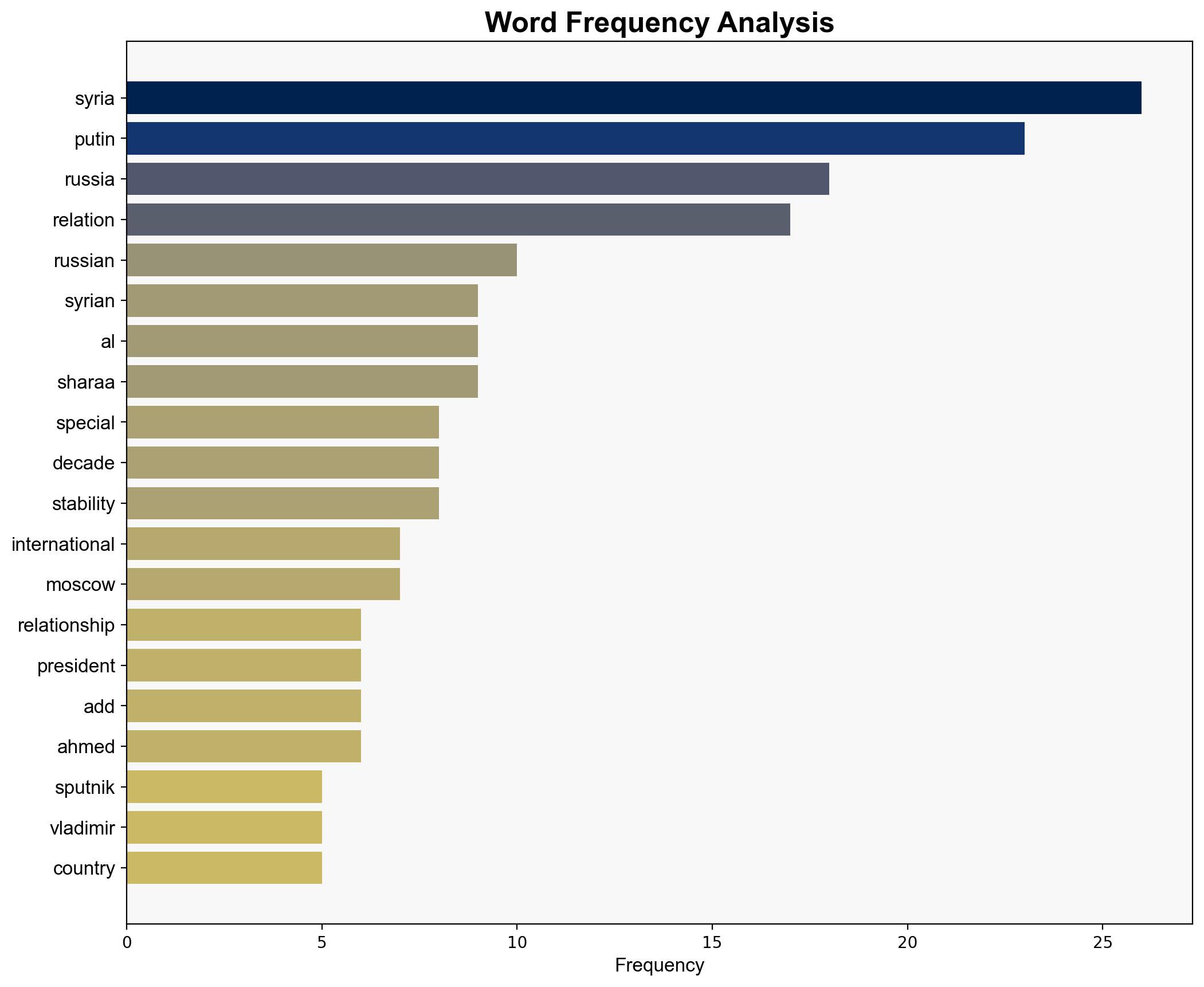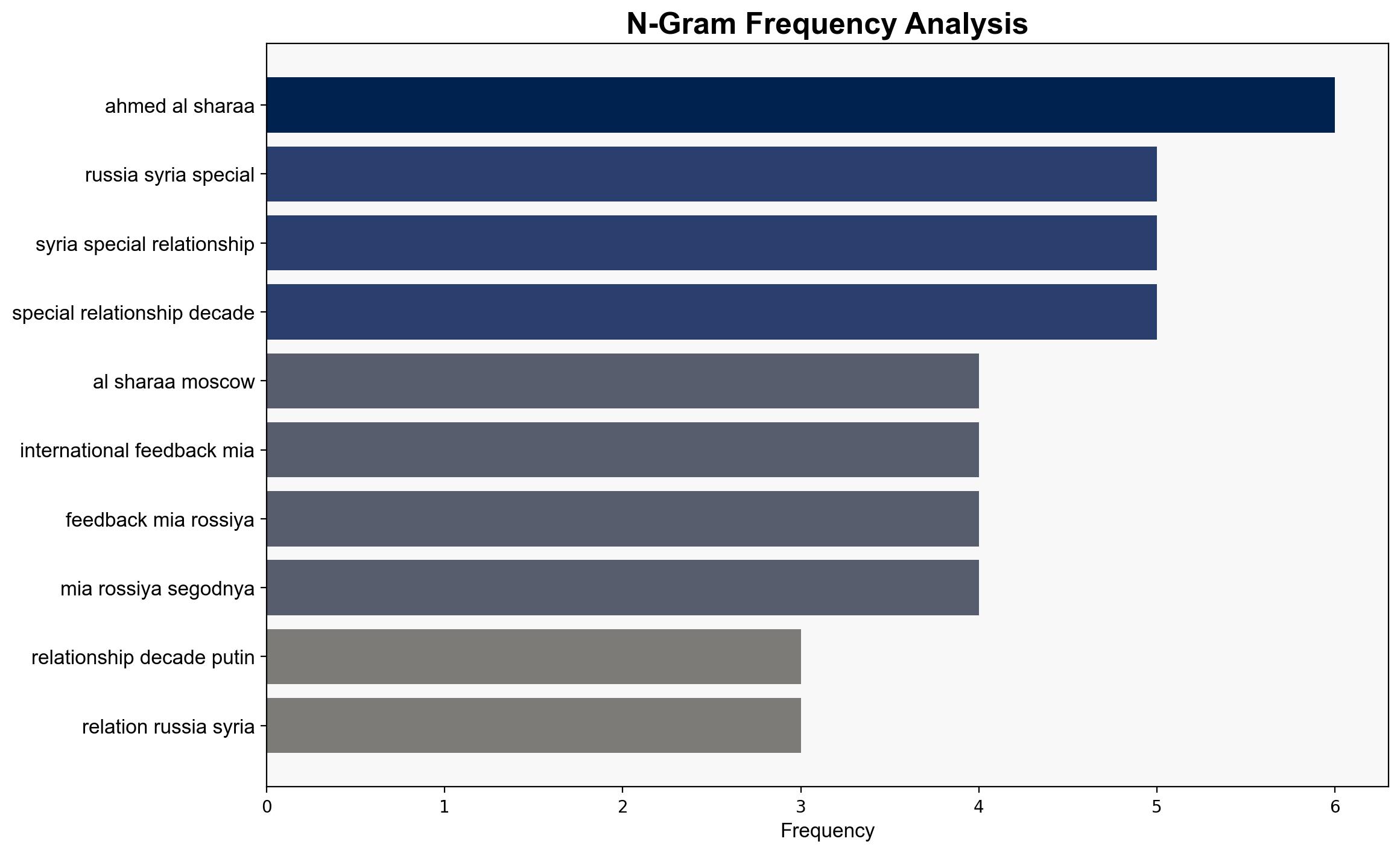Russia Syria Have Special Relationship for Many Decades – Putin – Sputnikglobe.com
Published on: 2025-10-15
Intelligence Report: Russia Syria Have Special Relationship for Many Decades – Putin – Sputnikglobe.com
1. BLUF (Bottom Line Up Front)
The strategic judgment suggests that Russia is reinforcing its long-standing relationship with Syria to maintain influence in the Middle East. The most supported hypothesis is that Russia seeks to stabilize Syria to secure its geopolitical interests in the region. Confidence level: Moderate. Recommended action: Monitor developments in Russian-Syrian relations and assess potential impacts on regional stability and Western interests.
2. Competing Hypotheses
1. **Hypothesis 1**: Russia is strengthening its relationship with Syria to maintain and expand its influence in the Middle East, using Syria as a strategic ally to counter Western influence.
2. **Hypothesis 2**: Russia’s engagement with Syria is primarily driven by economic interests, including securing energy routes and rebuilding contracts in post-conflict Syria.
Using the Analysis of Competing Hypotheses (ACH) 2.0, Hypothesis 1 is better supported due to the emphasis on political and military cooperation in the source text, which aligns with Russia’s historical pattern of using Syria as a geopolitical foothold.
3. Key Assumptions and Red Flags
– **Assumptions**: It is assumed that Russia’s primary motivation is geopolitical rather than economic. This assumption may overlook the potential economic incentives for Russia.
– **Red Flags**: The source’s emphasis on the success of Syrian parliamentary elections could be misleading, as it may not reflect genuine political stability or democratic progress.
– **Blind Spots**: The intelligence lacks detailed information on the internal dynamics within Syria and how they might affect Russia’s strategic calculations.
4. Implications and Strategic Risks
– **Geopolitical Risks**: Strengthening Russian-Syrian ties could exacerbate tensions with Western countries, particularly the U.S., leading to increased geopolitical friction in the Middle East.
– **Economic Risks**: If Russia’s involvement is economically motivated, failure to secure contracts could lead to financial losses and domestic discontent.
– **Cyber and Psychological Risks**: Enhanced cooperation might include cyber capabilities, posing potential threats to regional cybersecurity. Additionally, Russia’s narrative of stability might influence public perception and diplomatic relations.
5. Recommendations and Outlook
- Enhance intelligence collection on Russian activities in Syria to better understand their strategic objectives.
- Engage with regional allies to counterbalance Russian influence and promote stability.
- Scenario Projections:
- **Best Case**: Russia’s involvement leads to genuine stability and reconstruction in Syria, benefiting regional security.
- **Worst Case**: Increased Russian influence leads to heightened tensions with Western powers, destabilizing the region further.
- **Most Likely**: Russia continues to solidify its presence in Syria, maintaining a status quo of influence without significant escalation.
6. Key Individuals and Entities
– Vladimir Putin
– Ahmed Al Sharaa
7. Thematic Tags
national security threats, cybersecurity, counter-terrorism, regional focus





